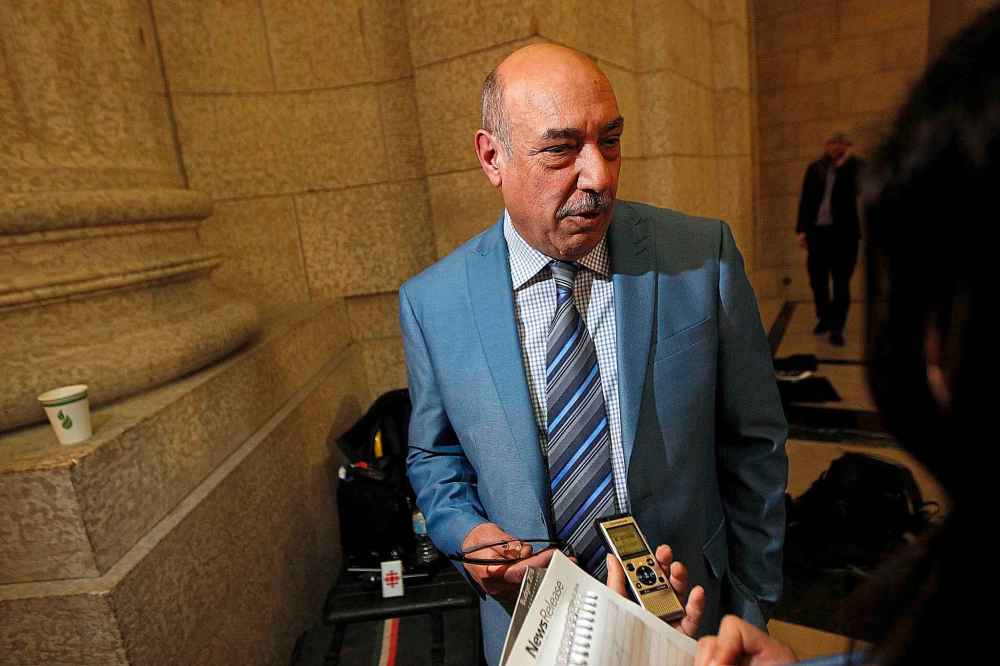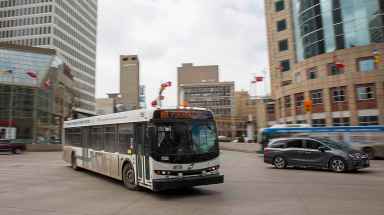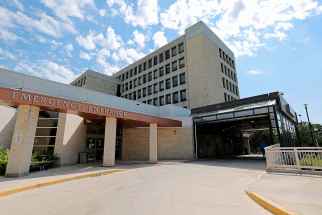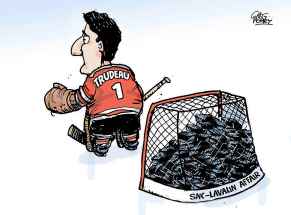Transit union sounds alarm over staff turnover
Read this article for free:
or
Already have an account? Log in here »
To continue reading, please subscribe:
Monthly Digital Subscription
$0 for the first 4 weeks*
- Enjoy unlimited reading on winnipegfreepress.com
- Read the E-Edition, our digital replica newspaper
- Access News Break, our award-winning app
- Play interactive puzzles
*No charge for 4 weeks then price increases to the regular rate of $19.00 plus GST every four weeks. Offer available to new and qualified returning subscribers only. Cancel any time.
Monthly Digital Subscription
$4.75/week*
- Enjoy unlimited reading on winnipegfreepress.com
- Read the E-Edition, our digital replica newspaper
- Access News Break, our award-winning app
- Play interactive puzzles
*Billed as $19 plus GST every four weeks. Cancel any time.
To continue reading, please subscribe:
Add Free Press access to your Brandon Sun subscription for only an additional
$1 for the first 4 weeks*
*Your next subscription payment will increase by $1.00 and you will be charged $16.99 plus GST for four weeks. After four weeks, your payment will increase to $23.99 plus GST every four weeks.
Read unlimited articles for free today:
or
Already have an account? Log in here »
Hey there, time traveller!
This article was published 28/03/2019 (2453 days ago), so information in it may no longer be current.
The union that represents the largest number of Winnipeg Transit employees says management appears unconcerned about a turnover rate among its members that has reached an alarming rate.
Aleem Chaudhary, president of Amalgamated Transit Union Local 1505, said the number who quit or resign annually has now reached 10 per cent.
“Transit is losing people with experience and it’s taking a toll,” Chaudhary said this week. “They should have the exit interviews to discover what’s going on. Those are the kinds of things we want to get to the bottom of. This is something that has to be addressed. It’s been going on for such a long time.”

Local 1505 represents about 1,460 Transit employees, with 1,000 of them employed as drivers and the rest employed as mechanics and building and vehicle maintenance staff.
Chaudhary said the union had lobbied Transit management to conduct exit interviews for more than a year before it agreed last month to undertake them. However, he said the union has not seen any sign Transit is acting on that commitment.
The union said seven members resigned in the past month, and none were involved in exit interviews.
The Free Press requested an interview with a Transit official on the issue. Instead, a Transit spokeswoman replied in a statement that interviews are routinely conducted with staff who have quit.
“Winnipeg Transit operations supervisors meet with operators who are leaving their positions to determine their reason for doing so. That information is logged and tracked,” the spokeswoman said in an email to the Free Press.
Turnover
March 2018- March 2019
Membership: 1,460
Resignations: 138 (9 per cent)
March 2017-March 2018
Membership: 1,457
Resignations: 87 (6 per cent)
March 2016-March 2017
Membership: 1,436 ()
Resignations: 117 (8 per cent)
— Source: Amalgamated Transit Union
That position was not supported by minutes of union-management meetings provided to the Free Press by the ATU.
According to a series of meeting minutes, Transit human resources manager Todd Slatnik indicates he is receptive to initiating exit interviews, stating they used to be done and it would be a good idea.
For example, from April 2018: “Todd confirmed this was done in the past and can follow up with corporate HR if there are plans to resume this practice. Todd to provide an update next month.”
From August 2018: “Todd to follow up provide an update next month — No new updates at this time… will continue to discuss at HRLG. Todd to draft the few questions we would like to ask and review with ATU.”
The Transit spokeswoman later clarified its policy, one day after being told the Free Press was aware of the union-management meeting minutes, casting doubt on Transit having committing to an official exit interview process, as Chaudhary said.
“We don’t have a formal exit interview process, we have an informal process,” the spokeswoman said in a second email. “The informal process we have in place provides us with the information needed for tracking purposes relating to employees’ reasons for leaving.”
A second request from the Free Press for an interview with a Transit official garnered no response.
Transit strike possible: city
City officials have raised the possibility of a strike by Winnipeg Transit employees — a scenario the transit union is trying to minimize.
The City of Winnipeg issued a statement Thursday saying it has presented a tentative offer to Amalgamated Transit Union Local 1505, which represents about 1,460 employees, which, if rejected, “will provide the union with a strike mandate.”
However, Local 1505 president Aleem Chaudhary said its members can reject the city’s offer, with a strike mandate requiring a second vote.
City officials have raised the possibility of a strike by Winnipeg Transit employees — a scenario the transit union is trying to minimize.
The City of Winnipeg issued a statement Thursday saying it has presented a tentative offer to Amalgamated Transit Union Local 1505, which represents about 1,460 employees, which, if rejected, “will provide the union with a strike mandate.”
However, Local 1505 president Aleem Chaudhary said its members can reject the city’s offer, with a strike mandate requiring a second vote.
“It is unfortunate that the City of Winnipeg feels the need to bring negotiations between the city and the ATU 1505 into the public for the second time in four years,” he said in a statement released Thursday by the union.
“If the City of Winnipeg felt that they had made a fair offer to our membership, then we sincerely doubt that they would be releasing public statements regarding the proposal to the media and general public.”
Chaudhary said if the members reject the offer, he expects bargaining would resume.
The collective agreement between Local 1505 and the city expired Jan. 12.
Union members will vote on the new deal next week, with final results expected to released April 5.
Among the 1,460 Local 1505 members, about 1,000 are Transit drivers, with rest employed as mechanics, building and vehicle maintenance staff.
Chaudhary said with increasing incidents of assaults, both verbal and physical, on drivers, the job has become extremely stressful.
Transit credited part of its $13.6-million surplus in 2018 to an unexpected number of employee resignations and retirements, which it said amounted to $5.1 million in savings.
Winnipeg city council allocated $3.1 million of the surplus to cover the installation of driver shields on all buses. Transit staff told a council committee late last year it preferred to see the surplus assigned to a capital reserve account.
Chaudhary said additional monies should have been set aside for enhanced training, as the workforce is increasingly comprised of inexperienced employees.
He also said any exit interviews should be done by an independent third party.
“Nobody is going to say to the employer, in a face-to-face, why they’re leaving. Not honestly, anyway,” Chaudhary said. “Especially if they have any hostility or any kind of feelings towards the company.”
aldo.santin@freepress.mb.ca









